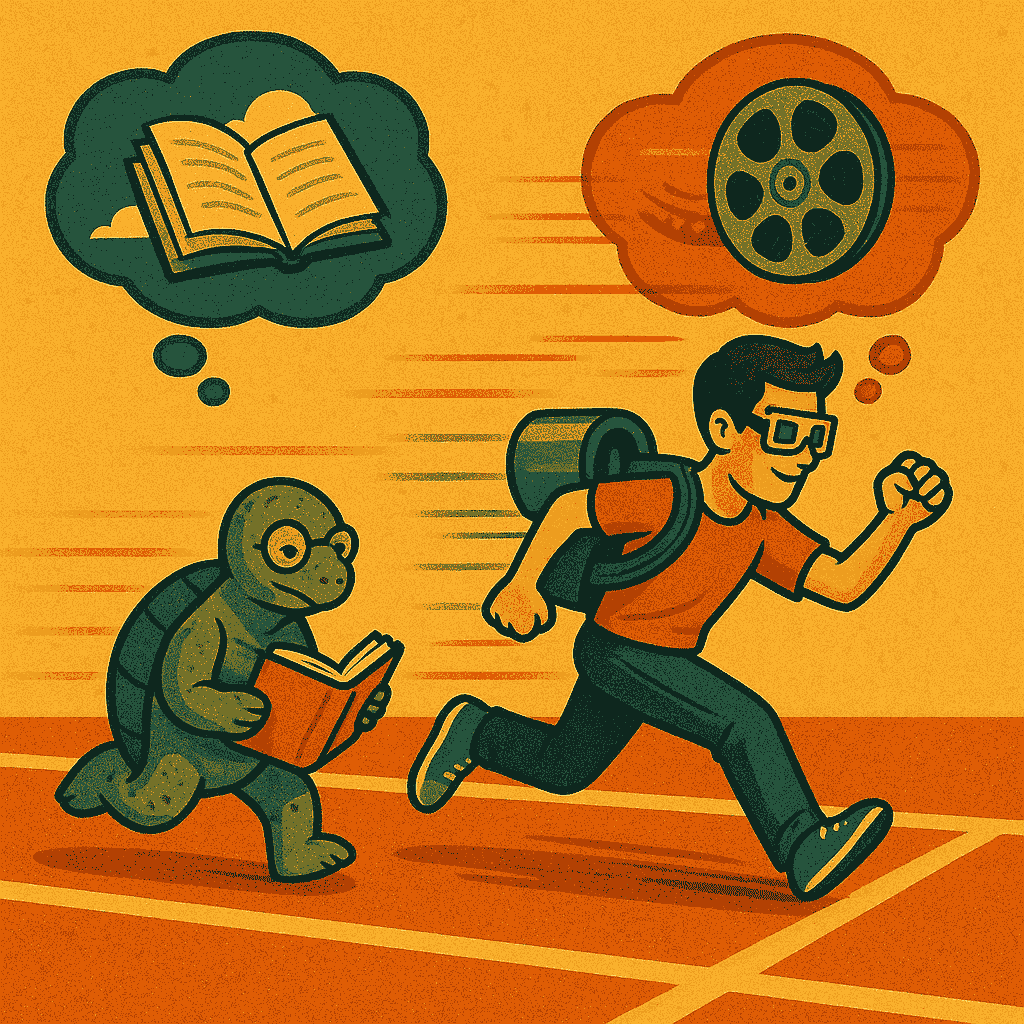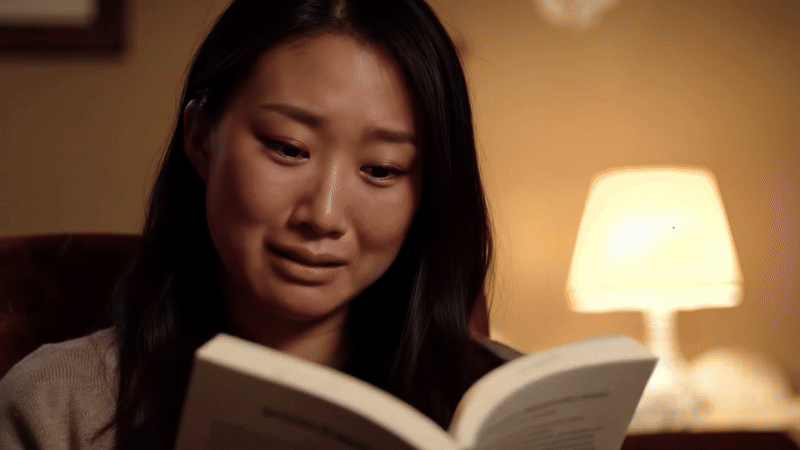How Does the Movie Compare to the Book?
Have you ever watched a movie adaptation and thought, “That’s not how I imagined it at all”? From Harry Potter to The Hunger Games, films often reimagine beloved stories—but do they do them justice? Let’s explore how books and their movie versions stack up.
How Does the Movie Compare to the Book?
Books provide deeper character development, rich details, and imaginative freedom, while movies offer visual storytelling, faster pacing, and social appeal. Each format has its strengths, but books generally offer more emotional depth and insight.

From Page to Screen: A Shift in Imagination and Impact
Growing up reading books before watching their movie adaptations, I’ve always noticed how the story changes when it moves from the page to the screen. Books like Harry Potter invite readers to build their own mental images of characters and worlds. But in the movie, that inner vision often gives way to the director’s interpretation—like how Emma Watson’s portrayal of Hermione replaced the image I had formed in my mind.
Comparing the Movie and Book: The Hating Game Edition highlights these differences vividly, showing how adaptations can shift tone and character dynamics. Movies can be emotionally engaging and visually thrilling, but they often leave out details that reveal the author’s full intent. My English teacher used to say: “Always read the book first—the movie can’t hold everything.” And it’s true. Directors may add a creative touch, but those changes can disappoint fans if they drift too far from the original story. While some, like Little Women (2019), offer new insights, I still believe the raw magic of a novel remains unmatched.
The Impact of Adaptations on the Story
Turning a book into a film usually requires trimming scenes, characters, or internal dialogue—things that give the story its emotional weight. As a result, movie adaptations may struggle to deliver the same depth, and viewers may miss key connections or character development. Reading lets us imagine faces, voices, and expressions based on rich descriptions, creating a unique bond with the story. Movies, on the other hand, often simplify vocabulary and plot to fit time limits. That’s why books help improve imagination and language skills, while movies provide a quick, shared experience.

Book vs Movie: Key Differences Explained
Here are the main ways books and movies differ when telling a story:
-
Character Development
Books dive deep into a character’s thoughts, emotions, and backstory. Movies mostly rely on dialogue and action, which limits emotional depth. -
Detail and Length
Books have the luxury of time and space to explore subplots, descriptions, and internal conflict. Movies must condense the story into a couple of hours, often skipping important scenes. -
Imagination vs. Visuals
Reading allows you to picture the world and characters in your own way. In movies, the director makes those choices for you—what you see is what you get. -
Pacing
Books can take their time, letting you pause, reflect, or reread. Movies are fast-paced and can’t stop to explain everything. -
Language and Vocabulary
Books improve your vocabulary and comprehension skills. Films focus on visuals and tone rather than words, offering less language exposure. -
Social vs. Personal Experience
Watching a movie is easy and social—you can enjoy it with friends in a short time. Reading is more personal, quiet, and immersive.
Character Portrayals: Fictional Depth vs. On-Screen Performance
There’s always a gap between how a character feels on paper and how they’re acted on screen. Books allow you to connect deeply with characters through internal monologues and personal thoughts. But in a movie, the performance depends heavily on the actor, direction, and screenplay.
Take Percy Jackson, for example—the 12-year-old book protagonist was portrayed by an older actor, creating a noticeable disconnect. In The Hunger Games, Katniss’s gritty, flawed survival instincts are softened in the film. Similarly, Firefly Lane fans were let down when the casting didn’t match the book’s character descriptions.
Movies may bring characters to life, but they risk flattening the emotional layers that books develop so carefully.
The Process of Adaptation: More Than Just Translation
Turning a novel into a film involves many creative and commercial decisions. Directors, editors, screenwriters, and even marketing teams shape the story for the screen. This can lead to changes that make the movie feel more like a reinterpretation than a faithful retelling. Watching with friends, I’ve often debated why key scenes were cut or casting didn’t fit the character descriptions. Movie adaptations are often influenced by audience expectations, publisher input, and budget constraints, which can lead to a final product that’s visually entertaining but emotionally shallow.

Still, seeing Harry Potter come to life or experiencing cinematic stunts and music scores does add magic—even if it’s not the same magic the book gave us.
The Strengths of Both: Which Should You Choose?
Books and movies serve different purposes and appeal to different preferences.
-
Books: Ideal for deep emotional exploration, imagination, and personal reflection.
-
Movies: Perfect for social viewing, visual thrills, and quick story consumption.
If you’re after detailed narratives and strong emotional connections, choose the book first. If you want to enjoy a story in one sitting with stunning visuals, go for the movie—but be prepared for some cuts and changes.
Conclusion: Why the Book Is Usually Better (But Not Always)
From personal experience, reading the book first offers the most complete and immersive journey. Whether it’s Gone with the Wind or Pride and Prejudice, the depth of a novel can’t be fully recreated on screen. That said, some films do an excellent job of capturing the story’s core spirit, even if they differ in detail.
In the debate of book vs movie, there’s no single winner. Both media can offer unique experiences—you just have to decide which you value more: imagination or interpretation.
FAQ: Book vs Movie Adaptations
1. Why do movie versions of books often feel different?
Answer:
Movies are limited by time and format, so they often skip details that books explore deeply. Directors focus on visual storytelling, which means inner thoughts and complex subplots may be cut. What you imagine while reading may not match what’s shown on screen, making the movie feel like a different version of the same story.
2. What makes books more detailed than movies?
Answer:
Books offer unlimited space for exploring characters’ thoughts, background stories, and emotional depth. Authors can describe moments in detail, building a rich experience in your mind. Movies, on the other hand, must simplify and compress scenes into a shorter format, often missing those tiny but powerful details.
3. How can I compare a book and its movie without missing key points?
Answer:
Start by noting what the book focused on—like character development, plot twists, or emotional arcs. Then watch the movie and list what changed, was added, or was left out. Pay attention to tone, pacing, and how characters are portrayed. Asking “why did the director change this?” helps you understand both versions better.
4. Are there any benefits to watching a movie before reading the book?
Answer:
Yes, watching the movie first can help visual learners understand the basic storyline quickly. It also creates curiosity, making readers more eager to dive into the book for extra details and explanations. However, this might also reduce the joy of imagining scenes and characters your own way.
5. What are the biggest drawbacks of turning books into films?
Answer:
Many film adaptations struggle to stay faithful to the source material. They may remove entire characters, skip important scenes, or change the ending to fit mainstream tastes. This often disappoints book lovers who feel emotionally connected to the original story.
6. Do people prefer movies over books—and why?
Answer:
Preferences vary, but many people choose movies because they’re quick, visual, and social. You can finish a film in two hours and discuss it with friends. Books take more time and focus but offer a deeper, more personal journey. Surveys often show younger audiences leaning toward movies, while older or more dedicated readers prefer books.
7. Can books and movies ever tell the same story equally well?
Answer:
In rare cases, yes—some films enhance the book’s message through visuals, music, and powerful acting. A well-made adaptation can add new layers to a story. But generally, books give more emotional depth, while movies offer stronger visuals and pacing. Each has its own way of telling the same tale.






